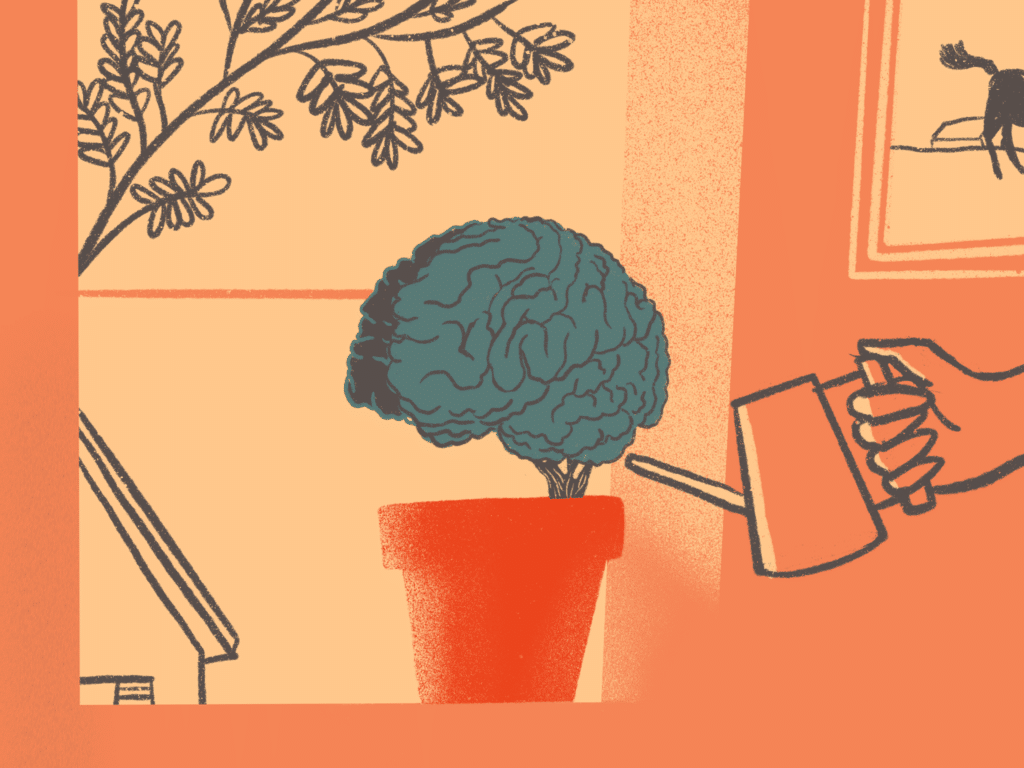“Musings On Life” Columnist Ron Marr looks to stave off the mental decline of advancing age by following the advice he found in a magazine. What challenges lie ahead as he looks to adopt some new habits and get rid of some unhealthy old ones?

By Ron Marr
Having earned a black belt in the deadly arts of denial and self-delusion, I like to think I have an excellent memory. I generally applaud myself for possessing amazing powers of recall shortly after losing my keys (usually in the door), my glasses (usually on my head), or my mind (usually in the clouds).
Luckily for me, my tendency to misplace common items multiple times a day does not result in great consternation. I’ve regularly and consistently lost my keys and glasses ever since I was old enough to have keys and glasses. As for my mind … those who know me would happily explain that it set sail sometime around 1977. I wouldn’t disagree.
Still, among peers and compatriots whose numerical age falls in the three-score range (give or take a decade) regular discussions about the perils of impending senectitude, especially in regard to cognition and retention, is something of a constant. If we were to compose a collective “state of the unanimity” address, its text could be summarized in a single sentence. “Am I going senile, and if so, would I even know it?”
It’s a little tough for many of us to realize that we’re now the same age as old people (again, denial and self-delusion are beautiful things), and we have all borne witness to the mental decline of family members. Such being the case—and herein lies the difference between us and our progenitors—our generation makes a valiant effort to stave off, and hopefully avoid, the ravages of chronological decrepitude.
I recently saw an article arguing that one should embrace four basic steps if they don’t want to go full-daffy. It’s a little troubling that I cannot remember where I saw the article, or the name of the doctor who wrote it, but I can cite the piece’s basic tenets. It said, for best results, one should focus on movement, learning new and sometimes uncomfortable things, stress reduction, and avoidance of sugar.
Maybe you should just kill me now.
In reality, I’m not doing too bad with these. I walk a couple miles a day, and for 10 years have lifted weights several times a week, notwithstanding the days when my wonky shoulder gives me fits. I started studying Spanish a year ago, practice it daily, and really don’t enjoy it. I continue, however, because the brain’s inherent neuroplasticity has arrogantly declared that optimum functionality only occurs when confronted with things that aren’t easy.
Most of my stress comes from being around people, and my lifestyle is such that nonquality time with humans who annoy me is minimal. For social interaction, I opt to hang with my dogs, Hugo and Cooper. Those companions only annoy me when they insist upon describing any of their fine dining experiences that involve rats.
I was discussing all this with a friend in New Jersey, who told me she was making similar progress. She’s very athletic, walks about a zillion miles a week, and plays pickleball regularly. She is mindful of stress reduction and practices meditation and focus. She takes classes—from Italian to tap-dancing—and has a wildly successful piano school for kids. Her problem, she said, was that it was difficult for her to find uncomfortable things to learn, as she was good at everything. “Including humility,” I responded. We both laughed.
As for sugar consumption, well, we were both eating Swedish Fish and chocolate-dipped fortune cookies as we spoke. Some sacrifices are simply a bridge too far.
A jumbled internet search triggers a wild and woolly memory for Ron Marr.
The Right to Arm Bears • Missouri Life Magazine
Article originally published in the May 2023 issue of Missouri Life.
Related Posts
Missouri Life wishes you Merry Christmas
We all wish you a warm and wonderful holiday season. During this time of joyous celebration, thankfulness, and reflection, we are grateful to you, for being a member of our Missouri Life family.
Preserving the Disappearing Memory of Missouri’s Little Tuskegee
In 1954, the U.S. Supreme Court declared that separate-but-equal facilities like schools were unconstitutional. This led to the closure of the school perched on the hillside in Dalton. After the 1956 school year, active Dalton students attended now-integrated schools in their hometowns.
Now seemed like a great time to gather memories of Dalton Vocational School from the shrinking pool of aging alumni. This podcast tells the story of Dalton Vocational School—Missouri's "Little Tuskegee"—in the former students' own words.
Become a Missouri Life Ambassador
We’re looking for a subscriber in every county to become a Missouri Life Ambassador. What is a Missouri Life Ambassador? A Missouri Life Ambassador shares suggestions, information, and insights with the magazine’s editors. We encourage our ambassadors to share story ideas and calendar items, and to offer opinions on special projects so that every part of Missouri is included in our award-winning coverage.



